How Boston’s Weather Impacts Your Building’s Exterior — and What You Can Do About It

Boston’s weather is as varied as it is extreme ranging from freezing winters and coastal storms to humid summers and salt exposure. Over time, these conditions can take a serious toll on a building’s exterior, affecting both its appearance and structural integrity. On top of that, frequent construction and road work in the city can stir up dust, debris, and grime that settle on buildings, accelerating wear and diminishing curb appeal. Knowing what to watch for—and how to respond—can help you stay ahead of costly damage and keep your property in top shape all year long.
1. Freeze-Thaw Cycles
Fluctuating winter temperatures cause moisture to seep into cracks and freeze, expanding and leading to spalled bricks, cracked concrete, and warped siding. If not addressed, this cycle can significantly weaken your building’s structure.
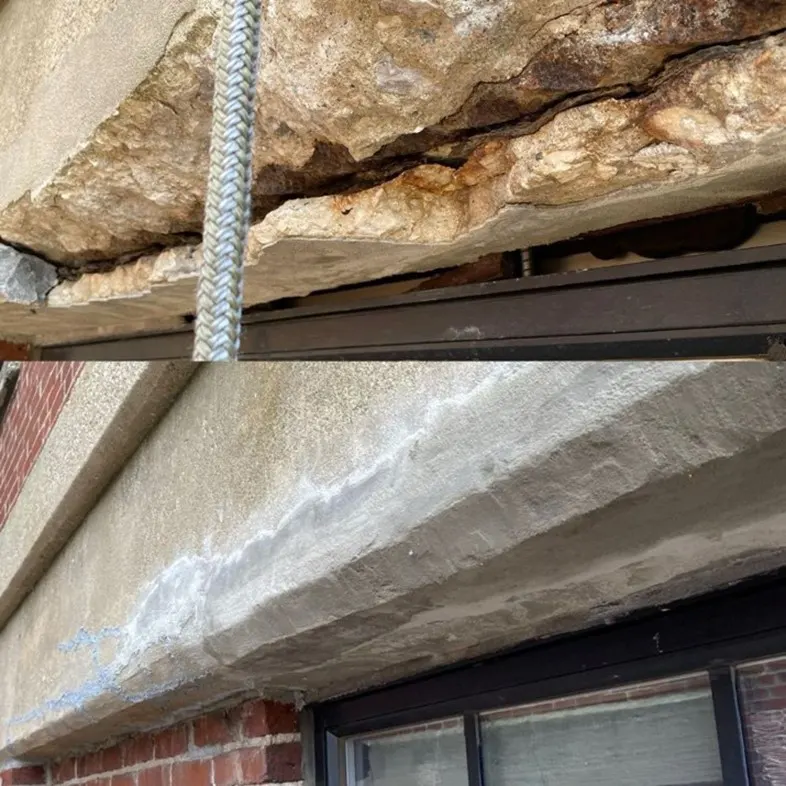
Preventative Measures:
- Masonry Repointing– Strengthens mortar joints and reduces water infiltration
- Sealing Cracks – Prevents future moisture damage
- Surface Restoration – Repairs and restores spalled areas
- Protective Coatings – Adds a moisture-resistant barrier
2. Snow and Ice Buildup
Snow and ice can accumulate on roofs, ledges, and gutters—forming ice dams that push water beneath shingles, siding, and window frames. This hidden moisture can lead to rot, mold, and interior damage, especially around vulnerable areas like windows and joints.
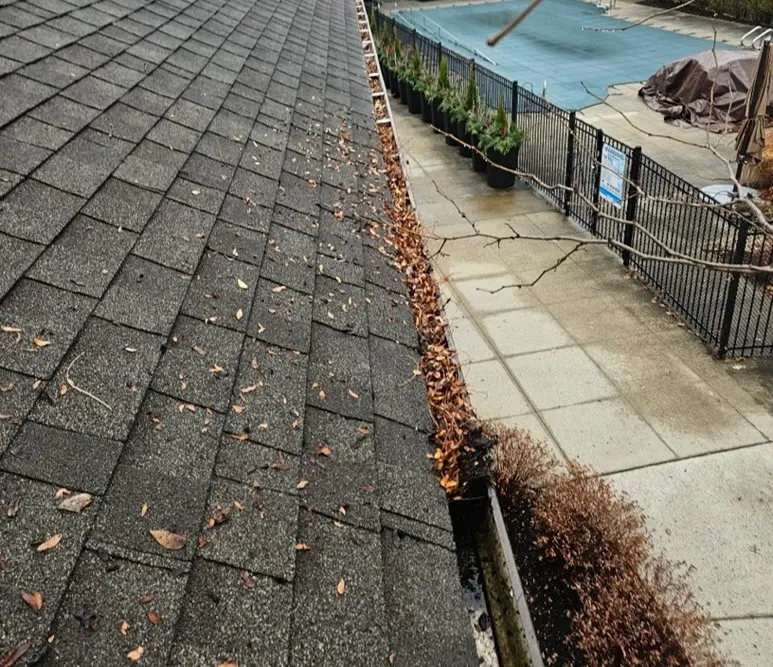
Preventative Measures:
Regular Window Cleaning – Regular cleaning prevents salt stains and mineral buildup that can permanently damage glass and lead to costly replacements.
Caulking & Sealing – Sealing cracks around windows and façades keeps out moisture and helps maintain energy efficiency.
Gutter Repair & Cleaning – Ensures proper drainage and reduces ice dam risks
3. Salt Exposure
De-icing salts used on sidewalks and roads improve safety in winter, but they’re harsh on building materials. Salt residue can corrode metal fixtures and break down stone, concrete, and masonry over time.
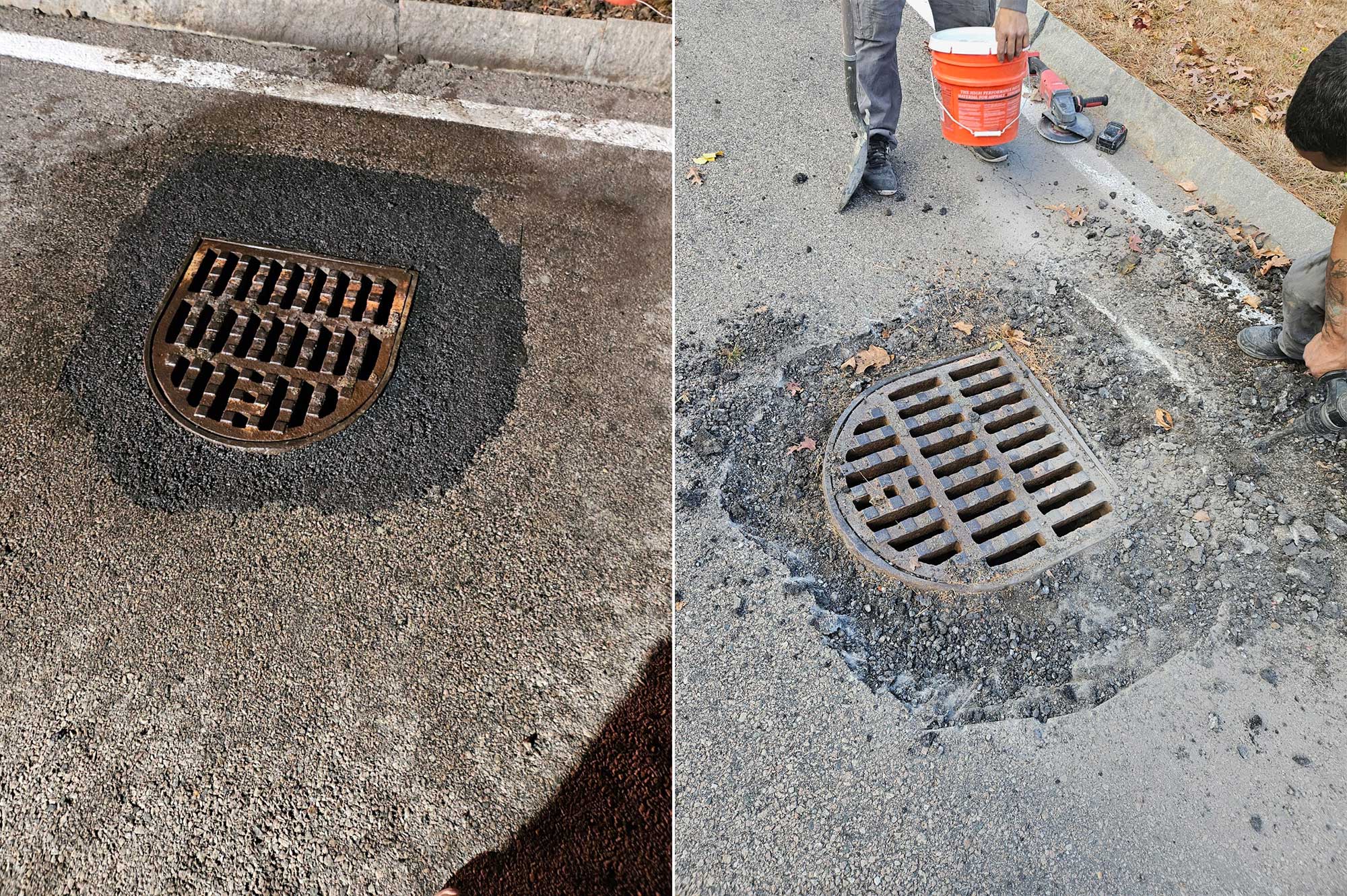
Preventative Measures:
- Concrete, Masonry & Stone Repairs – Restores surfaces damaged by salt and prevents further erosion
4. Humidity and Rain in Summer
Boston’s humid summers and frequent storms create ideal conditions for mildew, algae, and peeling paint—especially on wood siding and trim.
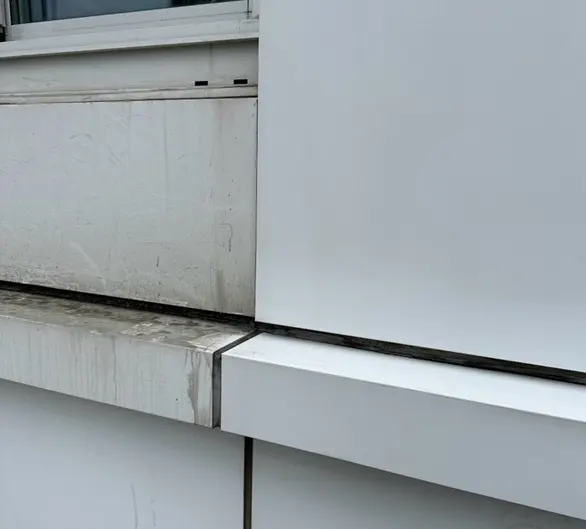
Preventative Measures:
- Pressure Washing – Removes mildew, algae, and surface buildup
- Exterior Painting – Refreshes and protects vulnerable wood and trim
5. Wind and Coastal Weather
Proximity to the Atlantic means exposure to salty sea air and high winds, which can accelerate corrosion and wear on building exteriors.
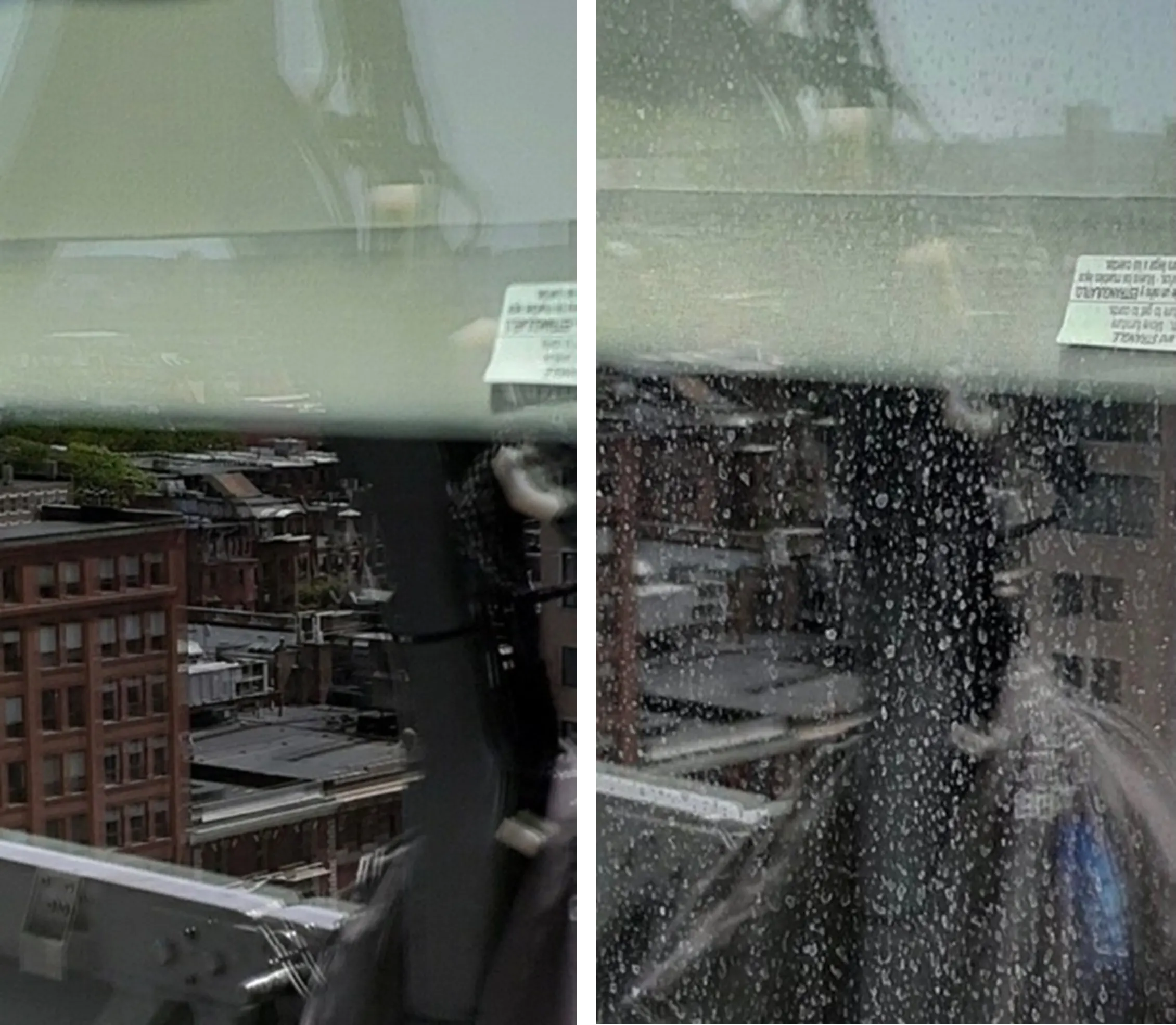
Preventative Measures:
- Window Cleaning – Removes salt buildup and maintains appearance
- Pressure Washing – Cleans surfaces exposed to sea air
- Concrete & Masonry Sealing – Provides a durable barrier against moisture and salt
Season After Season, You Have Options
Caring for a building in Boston means staying proactive across all four seasons. Whether you’re dealing with salt damage in winter or humidity in summer, the right maintenance strategies can help you extend the life of your property’s exterior. If you ever need support, Above the Rest Building Services has the experienced professionals and specialized equipment to help—no matter the season.


